Is Forestry a Good Career Choice?
- September 17, 2024
- 0 comment
Forestry is a field that plays an integral role in the balance of our planet’s ecosystems, impacting biodiversity, climate regulation, and even local economies. It encompasses a wide variety of job opportunities related to managing forests, conserving natural resources, and ensuring sustainable practices in wood production and wildlife management.
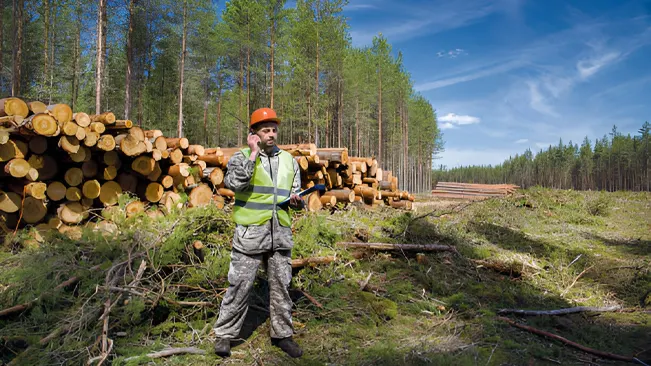
But is forestry a good career choice? To answer this question, we must explore various aspects of the profession including the skills required, job opportunities, work-life balance, potential earnings, and the long-term outlook for the industry.
Table of Content
- What Does a Career in Forestry Entail?
- Skills and Education Required for a Career Choice in Forestry
- Work-Life Balance in Forestry
- Earnings and Salary Prospects in Forestry
- Challenges in a Forestry Career Choice
- Is Forestry the Right Career Choice for You?
What Does a Career in Forestry Entail?
At its core, forestry is the science and practice of managing and conserving forest lands and ecosystems. Foresters often work to ensure that forests are sustainably managed, meaning that logging, recreational activities, and other uses of forest land don’t negatively impact biodiversity or the health of the ecosystem.
Forestry professionals may find themselves involved in a broad range of activities, such as:
- Planting and harvesting trees.
- Conserving wildlife habitats.
- Managing recreational forest activities.
- Overseeing sustainable logging practices.
- Conducting research on forest health, climate impacts, and biodiversity.
- Developing strategies to combat deforestation.
These roles offer the opportunity to make a tangible, positive impact on both the environment and society. Working in forestry involves a combination of fieldwork, which often takes place outdoors in forested areas, and office-based work such as planning, reporting, and policy development.
Skills and Education Required for a Career Choice in Forestry
To pursue a career choice in forestry, a strong background in environmental science, biology, or natural resource management is essential. Most entry level forestry positions require at least a bachelor’s degree in forestry or a related field, such as ecology, environmental science, or agricultural science.

- Analytical skills: Foresters need to evaluate forest conditions, create management plans, and assess the environmental impact of various activities.
- Communication skills: Whether it’s writing reports, working with government agencies, or educating the public, effective communication is vital.
- Technical knowledge: Understanding plant biology, forest ecology, hydrology, and even the economics of timber production is crucial.
- Field skills: Physical fitness, map reading, GIS (Geographic Information Systems), and the ability to work outdoors in all weather conditions are key components.
- Problem-solving skills: Managing forests sustainably requires the ability to devise creative solutions to problems like invasive species, erosion, or forest fires.
Job Opportunities in the Forestry Sector
The forestry industry offers a variety of career choice paths that cater to different interests and expertise. These include roles in public and private sectors, non-governmental organizations (NGOs), and research institutions. Below are some key job roles within the field of forestry:
Foresters
Foresters are responsible for managing forests and ensuring their sustainable use. This may involve overseeing logging operations, maintaining forest health, and developing conservation plans. They often work for government agencies, private logging companies, or conservation organizations.

Forest Rangers
Forest rangers work on the front lines of forest protection and conservation. They patrol forests to monitor illegal logging, fire risks, and the well-being of wildlife. Rangers play a critical role in enforcing environmental regulations and educating the public on forest conservation.

Wildlife Biologists
Wildlife biologists working within forestry focus on how wildlife populations interact with forest ecosystems. They help ensure that forestry activities do not harm wildlife populations and contribute to the restoration of habitats.
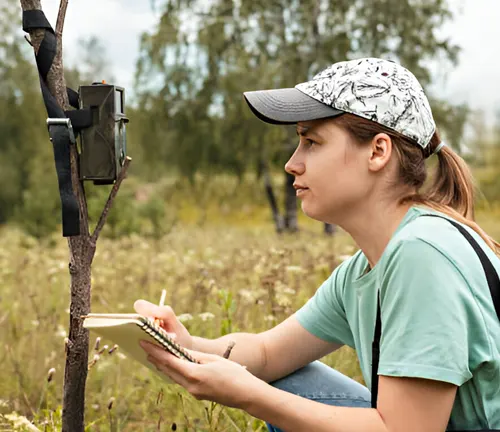
Urban Foresters
Urban foresters manage tree populations in cities and towns. They work on enhancing green spaces, developing urban forestry plans, and ensuring trees contribute to environmental quality in urban settings. This job is increasingly relevant as cities seek to address the challenges posed by climate change and urbanization.
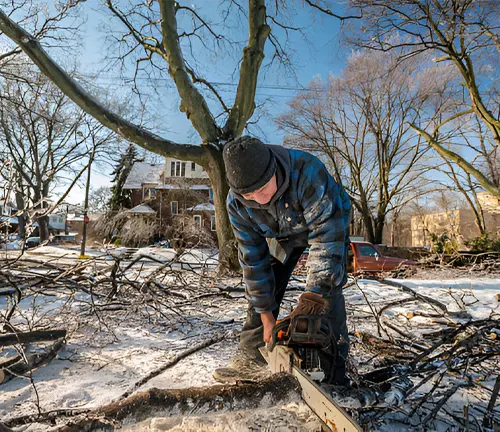
Environmental Consultants
Environmental consultants specializing in forestry work with companies, governments, and NGOs to help create sustainable land-use policies, forest management plans, and climate adaptation strategies.
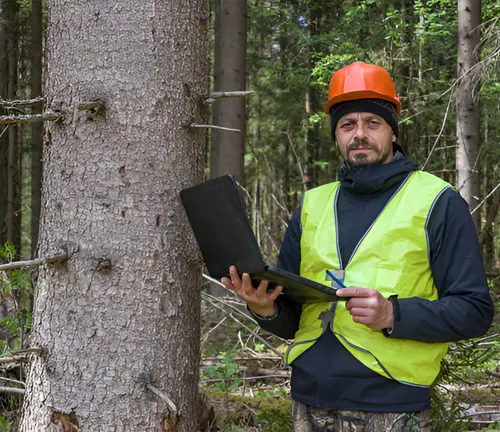
Work-Life Balance in Forestry
Forestry offers a mix of fieldwork and office work, which can provide a satisfying level of variety for many professionals. However, the amount of time spent in the field can vary greatly depending on the specific job. For example, a wildlife biologist or a forest ranger may spend the majority of their time outdoors, often in remote areas. In contrast, urban foresters or environmental consultants may find themselves balancing field visits with substantial time in the office, developing reports and plans.
Fieldwork can be physically demanding and may require working in adverse weather conditions, hiking long distances, or staying in remote locations for extended periods. For those who enjoy the outdoors, this aspect of forestry can be highly rewarding. However, it’s important to consider whether you’re comfortable with potentially irregular hours, including nights or weekends in certain roles like fire management or emergency forest health assessments.
Earnings and Salary Prospects in Forestry
The salary for forestry professionals varies depending on education level, job role, and geographic location. According to the U.S. Bureau of Labor Statistics (BLS), the median annual wage for foresters in 2022 was about $65,000. However, more specialized roles, such as environmental consultants or urban foresters, can command higher salaries.
Salary Breakdown by Role:
- Foresters: $50,000 – $70,000 annually.
- Wildlife Biologists: $60,000 – $80,000 annually.
- Urban Foresters: $60,000 – $90,000 annually.
- Environmental Consultants: $70,000 – $100,000 annually.
While the salary in forestry may not be as high as in some other professions, it is typically sufficient to provide a comfortable lifestyle, especially when factoring in the intrinsic rewards of working in nature and contributing to environmental conservation.
Challenges in a Forestry Career Choice
While a career choice in forestry offers numerous benefits, it’s important to recognize some of the challenges that come with the territory. These may include:
- Physical Demands: Fieldwork in forestry can be physically taxing, often requiring long hours, hiking in rough terrain, and exposure to adverse weather conditions.
- Isolation: Many forestry roles, particularly those that involve conservation or wildlife management in remote areas, can lead to extended periods of isolation.
- Job Security: In some regions, forestry jobs may be subject to economic fluctuations, as they can be dependent on timber prices or government funding for conservation projects.
- Environmental and Ethical Dilemmas: Forestry professionals must sometimes navigate complex ethical dilemmas, such as balancing the need for timber production with the preservation of natural habitats.
Is Forestry the Right Career Choice for You?
Forestry can be a deeply rewarding career choice for those who are passionate about the environment, enjoy working outdoors, and have a strong interest in conservation. It’s an excellent choice for individuals who want to make a tangible difference in protecting the planet’s natural resources. However, it is important to weigh the physical demands, potential isolation, and economic variables that come with the profession.
Those with a passion for technology and innovation will find exciting opportunities as the field of forestry becomes more data-driven, with increasing reliance on technology for monitoring forest health and managing resources.
Ultimately, a career in forestry is ideal for individuals who are resilient, adaptable, and committed to sustainability. It offers both the satisfaction of working in nature and the opportunity to contribute to global efforts to preserve and restore our forests.
Conclusion
So, is forestry a good career choice? For the right person, absolutely. It’s a career that offers a unique blend of outdoor adventure, environmental stewardship, and opportunities for both personal and professional growth. While it may not provide the financial rewards of some other professions, the chance to make a lasting
Frequently Asked Questions (FAQ)
- What qualifications do I need for a career choice in forestry?
To pursue a career choice in forestry, a bachelor’s degree in forestry, environmental science, or a related field is usually required. Specialized certifications, field experience, and advanced degrees may be needed for more technical or senior positions. - What types of jobs are available in forestry?
There are various roles in forestry, including foresters, forest rangers, wildlife biologists, urban foresters, environmental consultants, and conservation scientists. Each role focuses on different aspects of forest management and conservation. - Is forestry a physically demanding career?
Yes, many forestry roles involve physical activities like hiking through forests, working outdoors in diverse weather conditions, and performing manual labor such as tree planting or firefighting. However, some roles involve more office-based work. - How much can I expect to earn in a forestry career?
Salaries in forestry vary based on location, role, and experience. Entry-level positions may start at around $40,000 annually, while specialized roles like environmental consultants or urban foresters can earn upwards of $70,000 or more. - What is the job outlook for forestry professionals?
The job outlook for forestry is positive, particularly with the growing emphasis on sustainability, climate change mitigation, and conservation. Roles in urban forestry and forest management are expected to expand as environmental awareness increases. - What are the main challenges of a career in forestry?
Forestry professionals may face physical challenges, isolation in remote areas, adverse weather conditions, and ethical dilemmas related to balancing timber production with environmental conservation. The work can also be dependent on economic or government policy changes. - Can I specialize within the forestry field?
Yes, you can specialize in areas such as wildlife conservation, sustainable timber management, urban forestry, fire prevention, or environmental consultancy. Specialization often requires additional education or experience. - Is forestry a good career for someone who loves the outdoors?
Absolutely. Forestry is a perfect career choice for individuals who enjoy spending time outdoors, working in natural environments, and making a direct impact on the conservation and health of forest ecosystems. - How does technology influence forestry careers?
Technology is increasingly important in forestry, with advances in GIS (Geographic Information Systems), remote sensing, and drone technology revolutionizing forest monitoring and management. Professionals with tech skills are in high demand. - Are there opportunities for career advancement in forestry?
Yes, forestry offers opportunities for career advancement through experience, further education, and specialization. Many professionals move into managerial roles, research positions, or consultancy after gaining experience in the field.

Jordan Blake
Forestry AuthorJordan Blake is a forestry expert with over 15 years of experience in arboriculture and community education. Passionate about sustainable forest management, Jordan regularly writes for Forestry.com and Tree Care Magazine. Holding certifications in tree health assessments and urban forestry management, Jordan conducts workshops to educate the public on sustainable practices. Jordan has a degree in Environmental Science and enjoys hiking and photography in their free time.

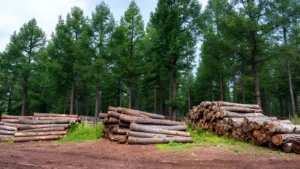

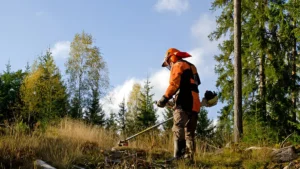
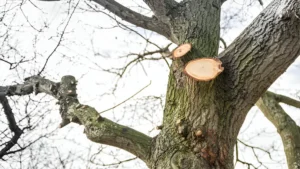
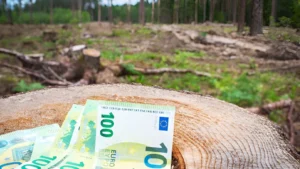



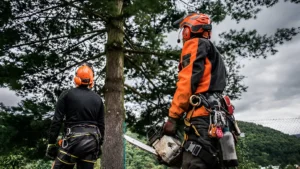

Leave your comment